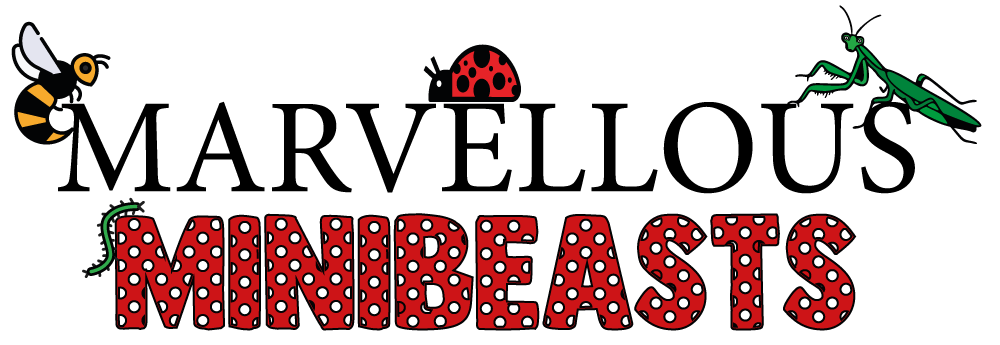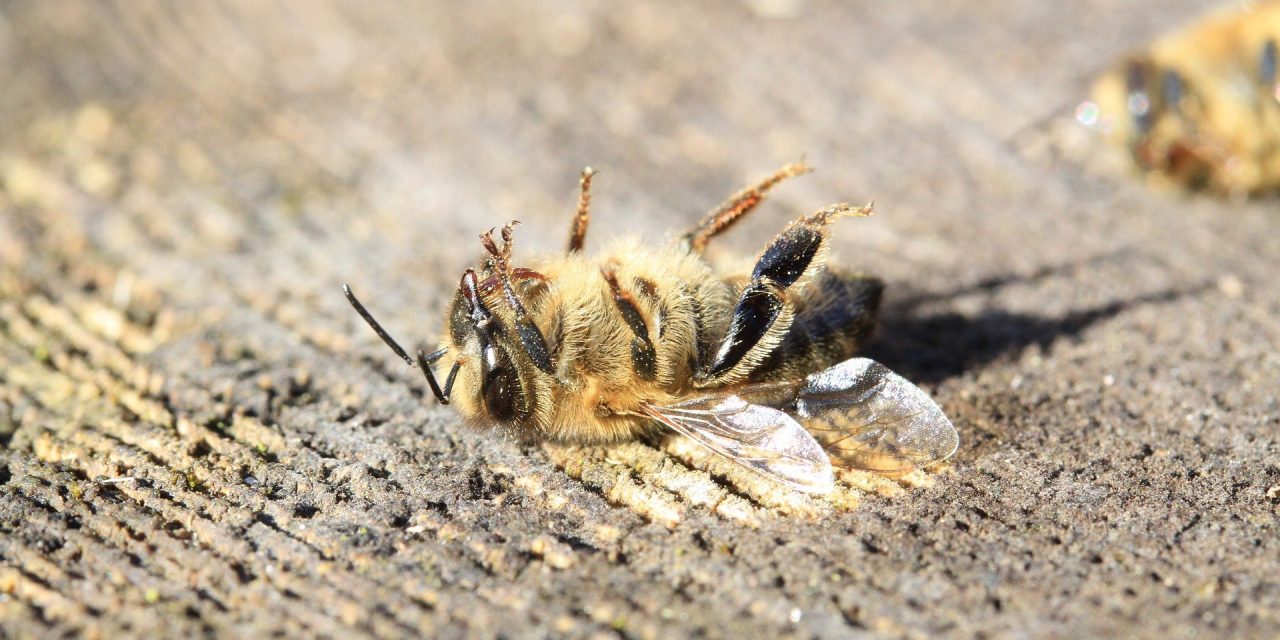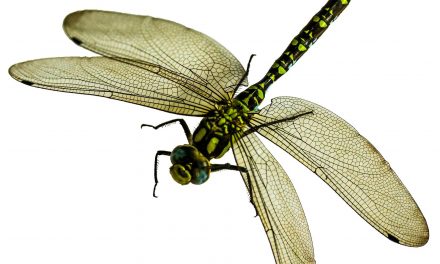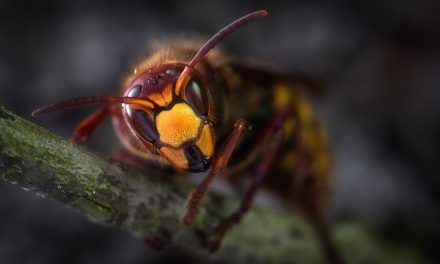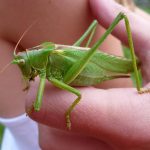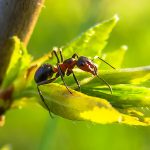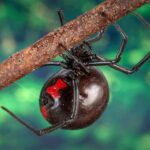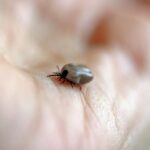There are two types of people when it comes to finding a bug in your home; those who immediately find a way to kill it, and those who will try to safely transport it outside so that it can go on to live its life. But should you feel guilty when you step on one or kill it on purpose? This is the question that we are going to answer in this article for you.
There is lots of speculation as to whether or not bugs have feelings or whether they can feel pain or not, and we are going to provide you with all the information about this that you are looking for. It can be helpful to know these things, so you know exactly what effect your actions are having. Even if you have killed a bug accidentally while swatting it away in a moment of panic, you might have felt bad about it for a long time afterwards, so we are going to give you the answers that you need here.
Should I Feel Bad When I Step On Bugs?
The answer to this question would depend on the kind of person that you are, as people will have different views on the ethics surrounding killing insects. Some will habitually feel guilty, thinking about the poor soul that they stepped on in the street, and others will move on like it’s a normal part of the day. Although, if you are going out of your way to purposely step on insects, then that is another story entirely. We are going to talk about whether ants have feelings and if they feel pain below, and this might give you a more solid answer to your question.
Something that you should be aware of is that all of the living things in this world, no matter how big or small, have an important role to play. Some of these roles may be more significant than others, but there are insects like bees that pollinate the plants that we need for food. Most of the food that we eat relies on these pollinators, and insects are the ones that do this job for us. There are also other insects like butterflies that help with this process, and without these pollinators, we wouldn’t have the luxury of plentiful food sources.
Other insects that help us are ants, who are important predators of insect pests that like to ruin our crops. We also have spiders that are another insect that is a key predator of pets in the great outdoors. When we think of all of the jobs that these insects do for the world that we live in, it makes them seem much more significant as living beings.
So, while killing bugs may not seem significant, these are insects that help us to live in the way that we do. Without all of these bugs, the world as we know it would be long gone, and it would be very difficult for us to survive. Of course, if it was an accident, then you shouldn’t be too hard on yourself, but if you are killing any and all bugs that enter your home, then maybe you should think about trying to safely transport them outside instead.
Will It Hurt a Bug if You Step On It?
This is another question that is difficult to answer, as pain is considered to be a human construct, and it is highly unlikely that insects feel pain in the same way that we do. If you were to quickly squish a bug, then it probably wouldn’t experience what we consider to be pain, or at least not for more than a split second.
Humans have receptors in our peripheral nervous system that can sense potentially harmful stimuli, like heat and pressure, and we interpret these factors as pain. Insects do have similar proprioceptors, chemoreceptors and thermoreceptors that are able to receive stimuli from their environments, but they likely do not experience pain from these receptors in the same way that we do.
Do Insects Feel Fear?
The concept of fear could contribute to something similar in terms of insects feeling pain, and it is likely that insects react to avoid things that will cause them pain out of fear. We habitually avoid things that are going to cause us pain through our past experiences and trial and error. Essentially, we learn to fear painful things, which is something that many insects can also learn. They are able to form memories and respond to environmental cues in a similar way, and they will learn to avoid things that are bad for them.
Interestingly, ground-nesting wasps use the features of a landscape to map the location of their nest, which allows them to go out and search for food and find their way back to their nest without any issues. This shows that they are aware of their surroundings. Honey bees will even go as far as to share information with their fellow bees on the location and quality of pollen as nectar sources, which allows them to forage more efficiently.
On the topic of whether or not insects can feel fear, we can look at insects like caterpillars. This insect is able to sense the vibrations on a plant that has been made by the predator, and they often stop moving or drop to the ground to try and trick the predator into thinking that they are dead. There are many other insects that will play dead to avoid being found and eaten by predators, and it could be argued that this is a behaviour that stems from fear.
However, there are others that would argue against this and say that it is nothing more than a survival tactic that allows them to go on to reproduce and pass along their genes. This just means that those that play dead are more likely to survive than those that don’t. Therefore, the strongest genes will be passed on through generations, and the others will be eliminated.
It is difficult to truly understand what insects can and can’t experience as we are limited to our own human perspectives, which can’t always be applied to insects in the same way.
Do Insects Feel Emotions?
It is entirely possible for insects to be able to feel emotions, but if they do, it is likely not in the same way as humans. Insects have much simpler brains, and they are often missing some of the key things that are needed in order to process different emotions, but this doesn’t mean that they can’t feel emotions on some level.
There is some level of awareness in the consciousness of an insect, but perhaps not to the same extent as people. They are unlikely to be able to experience things like attraction or pure joy, but without knowing exactly what is going on in their brains, it is hard to know for sure what they experience.
Therefore, we cannot make assumptions about what an insect can and can’t feel emotionally, but the idea cannot be discarded entirely. There would need to be a lot more research that takes place to conclude whether or not insects can feel emotions, but we can look at their behaviour as a starting point. Lots of different insects will react in ways that make us believe that they are capable of feeling emotions, and we will give you some examples below.
Examples of Insects Displaying Emotions
On some occasions, the behaviour of an insect can show a similar display of what we consider to be emotion and wasps are a great example of this. If you were to agitate a wasps nest, they would appear to be angry in their responses. Another great example is ants, who have appeared to show compassion to their comrades in studies by licking at their wounds.
It also appears that some insects can become frightened and act erratically, and others do seem to be quite curious. It is impossible to say whether or not an insect can be happy or sad without being able to talk to them or get inside their minds, but their behaviour could have a lot to say about what they can feel.
There are even studies that are taking place where scientists are actually looking around in the brains of insects to try and discover more about their ability to feel emotions. So far, it has been found that when certain sections of the brain have been removed, insects show behavioural responses in terms of how and when they move, and these responses are very predictable, just like with humans. So, perhaps the differences between us aren’t that complex after all.
Insects and Pheromones
It has been known for a long time that insects are able to detect and respond to pheromones and that their behaviour will change in response to them. Insects are able to respond to pheromones similarly to humans, and if these chemicals are modified or artificial ones are introduced, insects will respond accordingly.
An example of this is dopamine, which plays a role in the way we respond to pleasure, which is present in insect brains too. In people, low levels of dopamine can cause things like depression, mood swings, and food cravings, and in insects, it causes drastic behavioural changes and erratic behaviour.
